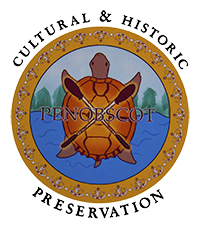This is a collection of voices and passions. As you explore these units and the accompanying materials, you will undoubtedly notice variety: variety in voice, in format, even in font! We have left these variations purposely.
Our vision for this project was to bring together Penobscot Nation cultural specialists and educational specialists. Our hope was that this teaming would generate rich, user-friendly material that could be used by educators throughout Maine. The voice of the Wabanaki people has been kept silent for far too long, and we hope that this project has given that voice a home in classrooms across the state.
The units are as varied as the voices that created them. Our intent was not to create a ‘cookbook’ of lessons for you, though they may surely be used as such. We hope the resources and lesson ideas allow you to inject aspects of Wabanaki culture into your existing curriculum. You may choose to use the lessons as they were piloted and documented in this work, or you may choose to add some of these materials during the course of an entire school year where you feel appropriate.
Regardless of how you use these materials, trust them. They are culturally appropriate and full of the fascinating aspects of Wabanaki culture that teachers have been trying to access for years. They have been piloted and ‘tweaked,’ and you should find them user-friendly as a result of our efforts. Enjoy the variety and note the power of collaboration!
Acknowledgements
This project was carried out by the Penobscot Nation Cultural and Historic Preservation Department, Indian Island School, and the Old Town School Department and funded by the Administration for Native Americans (ANA). These twelve units were developed by teams consisting of Project Director, Teachers, Tribal Resource Specialists, Educational Resources Coordinator, Curriculum Specialist, and members of an Educational Advisory Board.
Project Director
Bonnie D. Newsom
Director of Cultural and Historic Preservation Department
Teachers
Lee Francis Indian Island School
Julia Sockbeson Indian Island School
Kerri Doyle Old Town School System
Lynn Lowell Old Town School System
Tribal Resource Specialists
Pam Cunningham Penobscot
Frederick Nicolar Jr. Penobscot
Christopher Sockalexis Penobscot
Educational Resources Coordinator
James Eric Francis
Penobscot Nation Tribal Historian
Curriculum Specialist
Connie Manter
Manter Educational Services
Educational Advisory Board
Chris Avila
Carol Dana
Maria Girouard
Jennifer Neptune
Judy Pusey
Maureen Smith
Marie Yarborough
Clerical
Debbie Kondilis
Others
Special thanks to Penobscot Chief and Council, Directors of the Penobscot Nation, Penobscot Nation Language Department, Wabanaki Studies Commission, Wabanaki Center, Abbe Museum, Hudson Museum, Indian Island School Board, and Old Town School Board, Angie Reed, Binke Wang, Paul Smith, and all the employees of the Penobscot Nation, Indian Island School, and Old Town School System.
